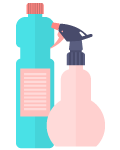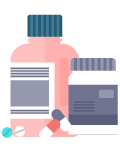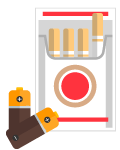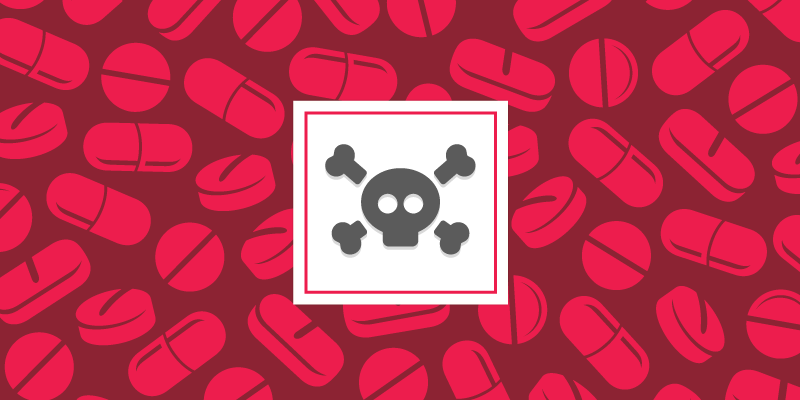Dr. Mom Helps You “Poison-Proof” Your House
Did you know that poisonings in children under the age of 6 accounted for nearly half of all poison exposures in 2018? Protecting our kids is important. Below are some tips to help “poison-proof” your house:
Most Important:
Children will swallow anything! During childhood development, the mouth serves an important role in sensory development; this is why babies and young children put everything in their mouth. Try to view all products and items from a child-like perspective. If it is brightly colored, shiny, has an interesting texture, smells good, etc., it is likely to be placed in the mouth.

Household Chemicals:
What most likely comes to mind when you think of children ingesting poisonous substances, includes household cleaners, pest control items, chemicals commonly stored in the garage (antifreeze, motor oil, paint), and more.
- Keep ALL household chemicals out of children’s reach, in a locked cabinet if possible.
- Chemicals that are “organic” or “naturally derived” can be poisonous if ingested.
- Keep in mind dishwasher or laundry “pods” that often have bright colors and interesting textures.
- Keep household substances stored away from food products.
- Buy only small quantities (what you will use quickly) of particularly harmful products such as insecticides, gasoline, antifreeze, or harsh cleaners like drain cleaners.

Medications:
We are often careful to read and follow labels for medications with young children, but not as careful about the messages we send or the ways we store medicines.
- Make sure medications are in locked cabinets or out of children’s reach, especially if they look like treats, such as gummy vitamins or chocolate-flavored laxatives.
- Never refer to medicines or vitamins as ‘candy’ or a ‘treat’ of any kind.
- Use medications safely and discuss why and how we take medicine with your children.
- Store in their original containers.
- Dose with the appropriate tool – syringe or cup – not a kitchen spoon.
- Follow directions on the packaging and complete prescriptions.
- Don’t leave medicines out on tables or counters.
- Take the current dose immediately and put the medication away.
- Ensure that child-resistant packaging is being used properly.
- Use essential oils with extra caution as some can be dangerous; some can be extremely dangerous if ingested, even in small quantities.

Plants:
There are a wide variety of plants in which all or specific parts of the plants can cause mild to severe poisoning. Know the plants in your yard, and whether they are safe for humans (some plants are poisonous even to the touch). Remove any dangerous plants, and teach your children not to put any unidentified plant matter in their mouths.

Household Objects:
This is probably the least identified category of dangerous or poisonous items in the house. Keep the following everyday items items out of the reach of young children:
- Button batteries, found in many items, are sometimes easily removed. These can get lodged in the esophagus or windpipe and the acid can burn a hole. Keep them stored away from the reach of children, and make sure battery compartments are well secured.
- Small magnets are often sold in sets for building sets and other adult “toys”. Keep these away from all young children, and count them when they are being put away. If two or more are swallowed, these can connect inside the digestive tract, trapping digestive tissue between them which usually requires surgery to remove.
- Nicotine products, including e-cigarettes and their cartridges, are very poisonous and should be stored at all times. Properly discard all nicotine by-products, such as cigarette butts. One cigarette butt contains enough nicotine (not to mention other nasty chemicals) to poison a child.
Please call the Poison Control hotline with any specific questions about materials or if someone has ingested something: 1-800-222-1222.
And of course, your local Neighbors Emergency Center is equipped to handle any and all adult and pediatric emergencies.
Stay safe,
Dr. Mom

